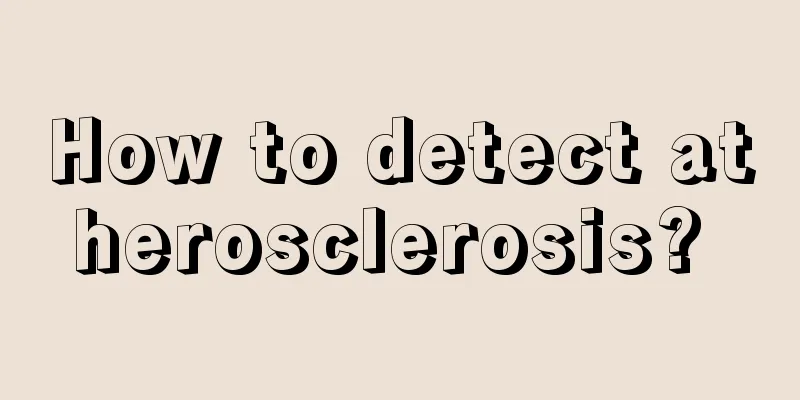How to use Band-Aid?

|
When people suffer skin injuries, they always use Band-Aids. Band-Aids are external patches made from anti-inflammatory and wound-healing medicines. They are convenient and practical, the best external medicine for treating wounds, and are deeply loved by people. If you have any health problems, the first thing you need to do is to choose a suitable medicine to take. Many people don’t know the correct way to use Band-Aids, which has caused many misunderstandings. The editor will tell you how to use Band-Aids to correct everyone. 01 Those with severe trauma or contaminated wounds should go to the hospital for treatment. Do not use Band-Aids before debridement. >02 Use a Band-Aid until the bleeding stops or after 2 to 3 hours, then switch to gauze. >03 Even if the wound is bandaged with a Band-Aid, it should not come into contact with water and should be kept dry to prevent infection. >04 Do not use Band-Aids if the wound is festering or eroded. >05 If the skin is slightly abraded and there is only a small amount of bleeding, there is no need to use a Band-Aid. >06 Band-Aids are sterile products. After opening the package, do not touch the inner hemostatic gauze with your hands. Band-Aids are one of the essential first aid medicines for every family, but many citizens do not know the correct way to use Band-Aids. The following are some common misunderstandings: Myth 1: Band-Aids can be applied anywhere When we use Band-Aids, we always try to be convenient and just put them on casually. This is incorrect. Correct way: Before using a Band-Aid, first check whether there is any dirt left in the wound. If there is any dirt, clean the wound with sterilized saline solution before applying the Band-Aid. If the wound is caused by a nail or other object and is relatively deep, you should go to the hospital immediately for treatment and receive a tetanus antitoxin injection. Secondly, after opening the Band-Aid, avoid contaminating the surface. When applying the patch, the medicine surface must be aligned with the wound, and after applying it, apply slight pressure on both sides of the wound. Myth 2: Band-Aids can last forever Putting a Band-Aid on a wound does not mean that everything is fine, nor can it be left there for a long time and ignored. The correct approach: First, pay attention to changes in the wound. If you feel a throbbing pain similar to a pulse or secretion at the wound after using the Band-Aid for 24 hours, you should open it and observe whether there is redness, swelling, heat or pain around the wound. If so, it means the wound has become infected and you should seek medical attention immediately. Second, pay attention to protecting the wound. After using a Band-Aid, do not pinch the wound frequently with your hands. Keep the wound as active as possible to avoid collision and prevent it from splitting. Third, Band-Aids should not be used for too long and should be changed once a day. Myth 3: Waterproof Band-Aids are not afraid of water Using a waterproof Band-Aid does not mean you can stay in contact with water for a long time. If the Band-Aid is not tightly attached to the skin around the wound, especially in special areas such as fingertips, knees and elbows, it will no longer be "waterproof". Correct approach: When using waterproof Band-Aids, try to avoid contact with water, pay attention to observing and protecting the wound, and replace Band-Aids that are soaked in water in a timely manner. This is the method of using Band-Aids that I share with you. Isn't it interesting? Mastering the correct method is how serious we are about ourselves, because we need to figure out everything before making a decision. Being confused will only make things worse. What I have told you should be shared with others. Maybe they are also in the misunderstanding and have not come out of it. That will lead to everyone guiding the next generation with wrong ideas. Let's master this knowledge as soon as possible. |
<<: What kind of exercise is good before going to bed
>>: What is a cardiac emergency kit?
Recommend
How to expel stool in daily life
If the stool cannot be discharged in time, it wil...
What are the hazards of isolation to the human body
Cadmium is an important metal, but it can cause g...
What are the side effects of tampons
Tampons are now slowly being used by some female ...
Symptoms of enlarged adenoids
Adenoids hypertrophy is actually a disease caused...
The role of coarse salt
The so-called coarse salt actually refers to the ...
What muscles do you train by hitting a boxing sandbag
Sandbag is a commonly used fitness equipment, whi...
How to increase the alcohol detoxification enzyme in the body
The human body is rich in biological enzymes, one...
How to do functional exercise after breast cancer surgery
How to do functional exercise after breast cancer...
What are the symptoms of colon cancer and how to diagnose it?
http://www..com.cn/zhongliu/jca/(1) Abdominal pai...
What are the reasons for a high heart rate when running stairs
Nowadays, many cities in my country are full of h...
Symptoms of advanced bladder cancer
The occurrence of bladder cancer brings endless p...
Scientific method of weaning off breast milk
After giving birth, pregnant women need to breast...
Is scraping good for the body?
Gua Sha is a method that many people choose to re...
How to treat hair loss? These hair growth tips are very practical!
Under normal circumstances, we lose some hair eve...
Rehabilitation treatment of shoulder-hand syndrome
In daily life, people often encounter shoulder-ha...









